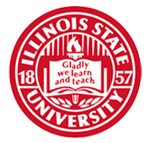Abstract
Purpose: Problem-based learning (PBL) promotes student-centered, active learning and has been applied in many health disciplines, including speech-language pathology (SLP). There is some SLP literature outlining how PBL has been applied and its components, however, how PBL is applied across SLP programs worldwide is yet to be explored. We therefore sought to answer the question, how do SLP programs apply PBL and what are the associated student outcomes?
Methods: Five databases were searched, as well as searching the grey literature for relevant articles. Covidence was used to de-duplicate, collate, and review articles. SLP program, study, PBL application, and student outcome data was extracted and synthesized.
Results: Thirty articles were included. PBL was applied in undergraduate and graduate SLP programs, typically using a hybrid model with most articles published in the United States, China, and Australia. Key components of PBL included group learning, a realistic clinical case, and a facilitator. Positive aspects (e.g., motivation, communication and reasoning skills, retention of information), as well as negative aspects of PBL were identified (e.g., time needed for preparation, student stress).
Conclusions: PBL is applied in various ways in SLP training, with a variety of strengths, challenges, and delivery methods identified in the literature. Overall, PBL has established utility in SLP programs, and research is warranted to further investigate PBL components such as outcomes, modes of delivery, case development, and facilitator training.
Recommended Citation
Phoenix, M. P.,
Grewal, R.,
Brissette, K.,
Albin, M.,
&
Kim, M.
(2025).
Problem-Based Learning in Speech-Language Pathology Programs: A Scoping Review.
Teaching and Learning in Communication Sciences & Disorders, 9(2).
DOI: https://doi.org/10.61403/2689-6443.1385




